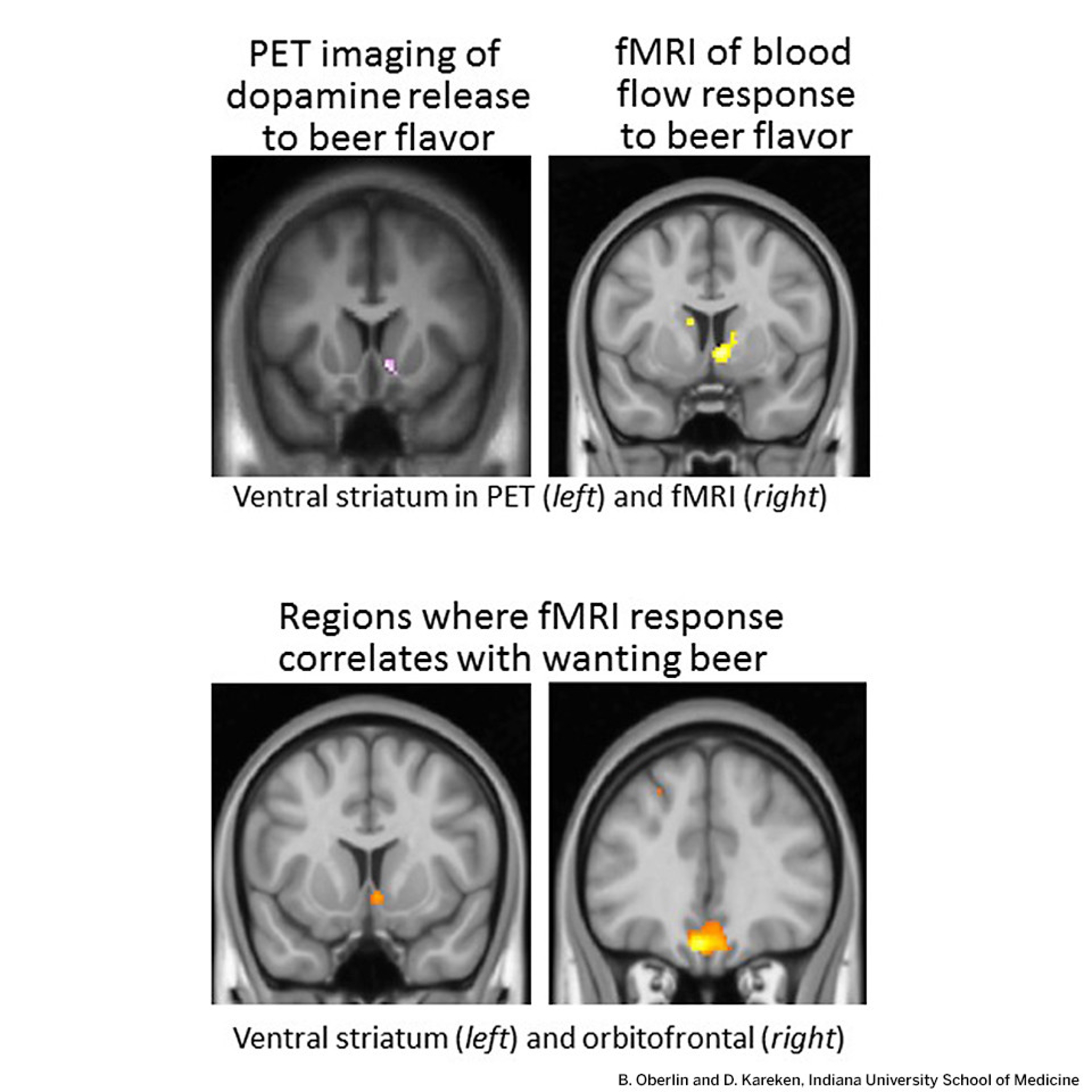A recent paper took brain scans and noted changes in response to beer flavor, namely increased activity in the right ventral striatum, which has been linked in other functional magnetic resonance imaging (fMRI) papers to behavior and reward. The authors used 28 male beer drinkers from a previous positron emission tomography (PET) scan imaging paper (49 men then) linking beer to dopamine release, and those men underwent fMRI scans during beer and Gatorade tastings.
Beer caused the scans in the ventral striatum to light up more, which the authors believe signaled a desire for more beer, while Gatorade didn't increase beer desire at all.
No women were included in either small study, and Lena Dunham will find a way to make that sexist, but the real concern is fMRI itself. A few months ago we learned that 70 percent of fMRI analyses were false positives. So not only were they just pretty pictures with correlation, non-independent analysis inflating results due to biased data sets, they weren't even accurate pictures.

Credit: B. Oberlin and D. Kareken, Indiana University School of Medicine
So this won't be a useful tool for solving the mystery of addiction just yet, regardless of what the authors suggest, but if you don't want Gatorade tonight, you at least have hope for a neuroscience explanation.



